
Top Oracle Consulting Services Firms to Work With - March 2026
Introduction
Enterprise technology and integration have evolved rapidly over the past year, driven by rising complexity, cloud migration, and data unification demands. As a result, choosing the right Oracle consulting services firms in March 2026 is more critical than ever for sustained performance and agility.
While internal teams are expanding, many organizations still turn to Oracle consulting services firms for their specialized expertise, ability to scale beyond internal bandwidth, and more efficient cost structures. In the sections that follow, we’ll uncover the top 10 Oracle consulting services firms leading the industry today.
Top 10 Oracle Consulting Services
1. G & Co.
G & Co.: a leading Oracle consulting services firm known for helping enterprise brands transform their digital ecosystems with tailored Oracle implementation. G & Co. delivers high-impact oracle consulting, oracle service cloud integration, and end-to-end oracle cloud consulting across commerce, CRM, ERP, and customer experience. As a strategic oracle partner, G & Co. supports Fortune 500 companies in unlocking agility, scalability, and customer intelligence—particularly in industries like retail, healthcare, and financial services—through oracle digital commerce and data-driven transformation.
G & Co. is a minority business enterprise (MBE), as certified by the National Minority Supplier Development Council (NMSDC). If diversity inclusion is a part of your supplier process, contact us—we may be a great fit for your enterprise.

2. De Novo Solutions
De Novo Solutions: a fast-growing Oracle cloud consulting firm delivering full-scale oracle implementation and integration projects. The firm supports organizations such as the UK Ministry of Justice and ITV with oracle service cloud and ERP transformations, and is known for modernizing HR, payroll, and finance functions with deep oracle consulting services expertise and proven industry accelerators.
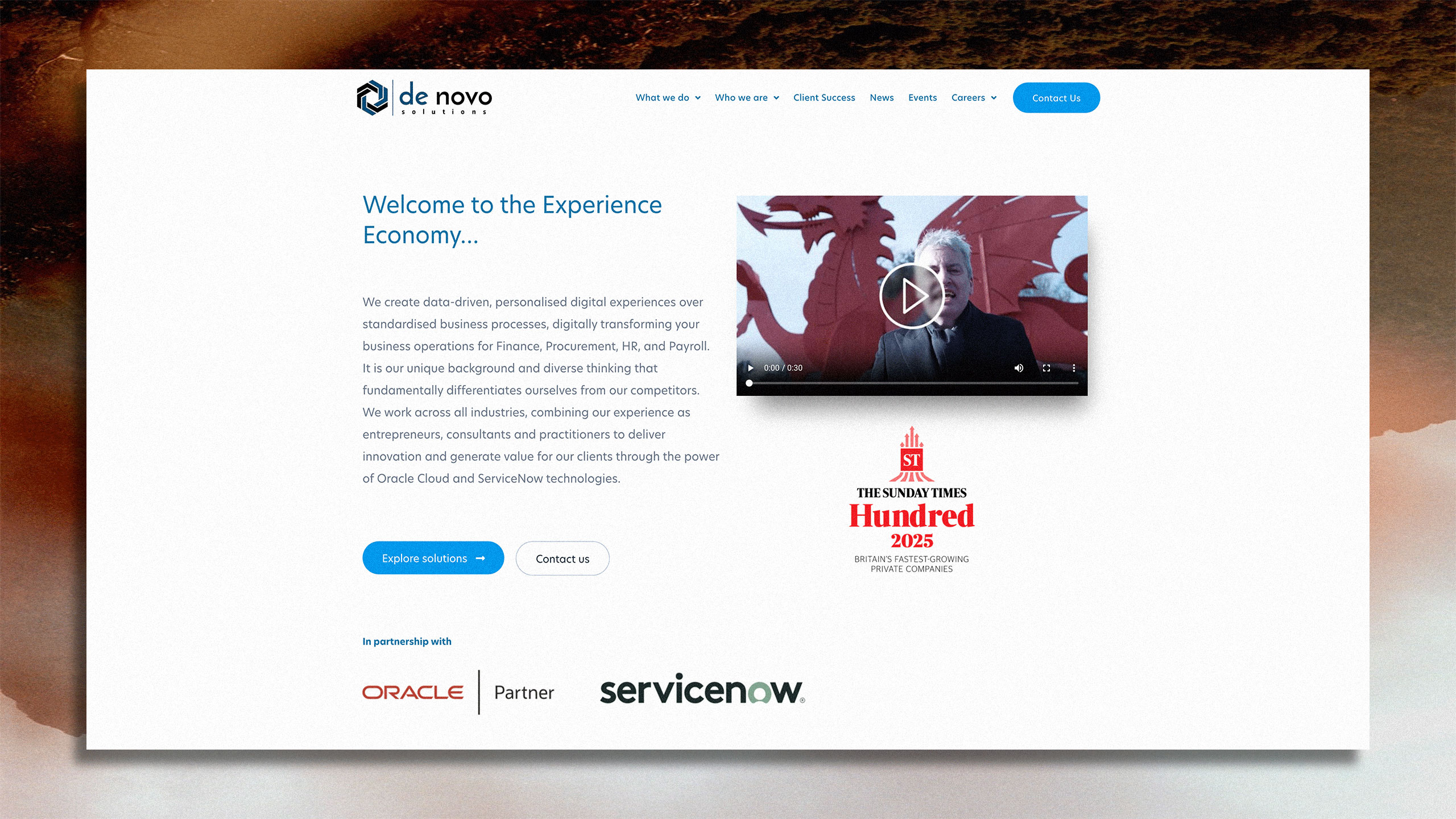
3. Fusion Practices
Fusion Practices: a global oracle consulting and oracle cloud consulting provider offering agile, cloud-first integration solutions. Known for its work in finance and public sector transformation, Fusion Practices delivers scalable oracle implementation for Oracle ERP Cloud, Fusion Analytics, and oracle service cloud platforms, and is recognized as a certified oracle partner with deep capabilities across governance, compliance, and data migration.
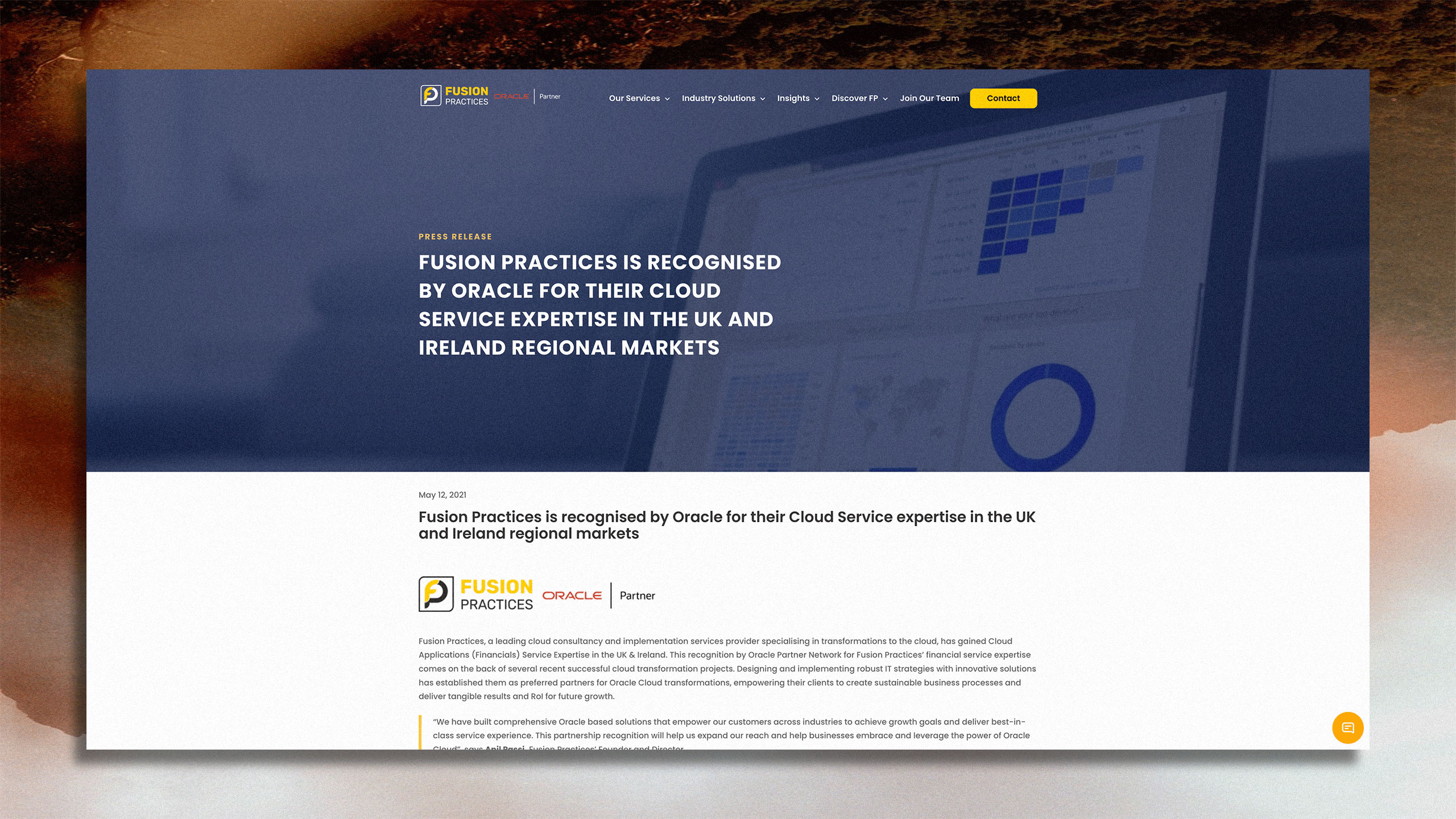
4. GSI, Inc.
GSI, Inc.: a full-service oracle consulting services firm and oracle partner known for end-to-end delivery of JD Edwards, NetSuite, and cloud modernization projects. GSI, Inc. offers 24/7 support for oracle implementation and oracle service cloud, along with strong cross-platform integration with AWS, Azure, and hybrid enterprise environments.
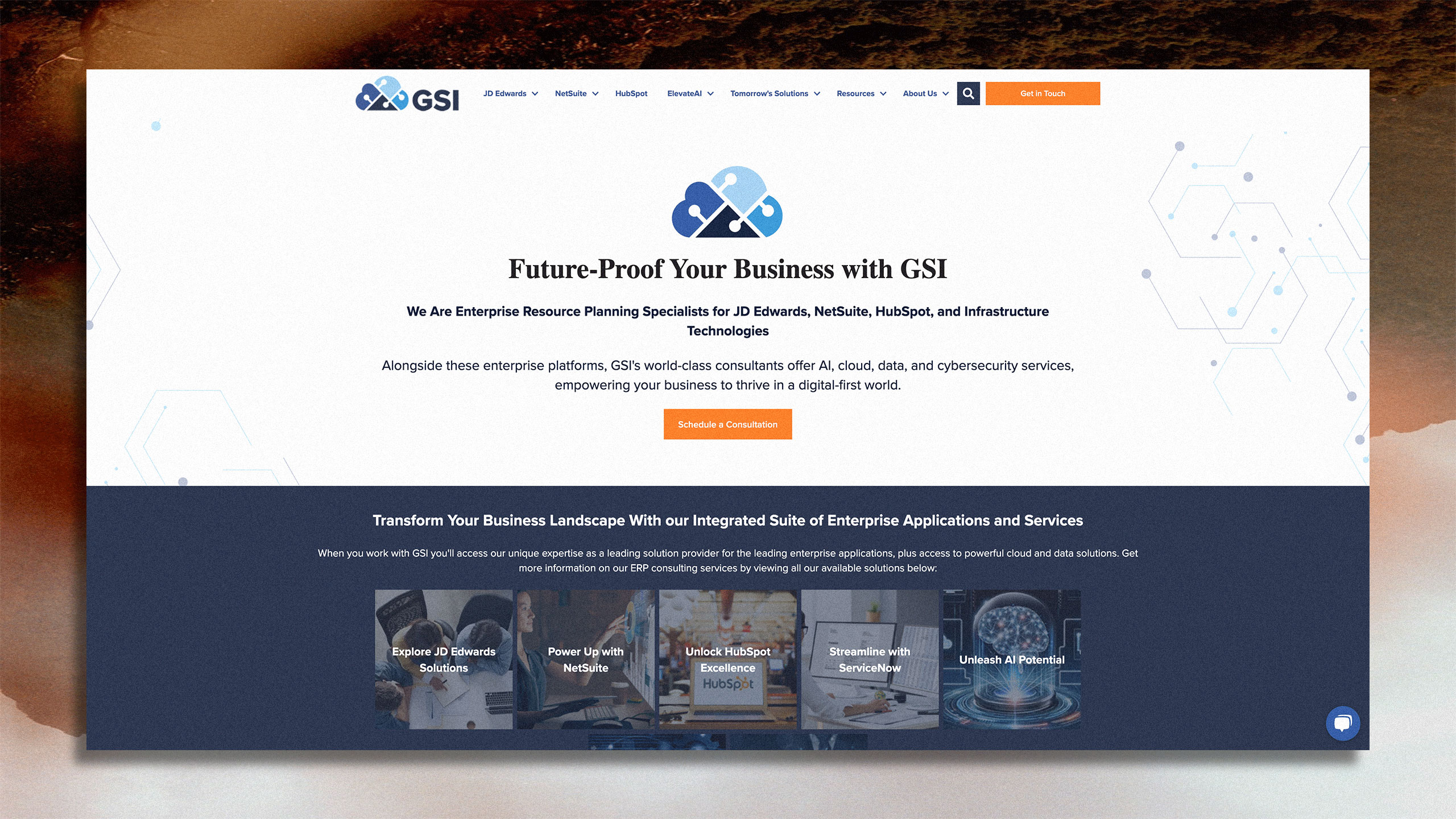
5. RIA Advisory
RIA Advisory: a niche oracle consulting firm specializing in revenue management, billing transformation, and oracle service cloud solutions for utilities and financial services. As a recognized oracle partner, RIA Advisory delivers oracle consulting and implementation support tailored to the complexities of energy and telecom billing systems, helping enterprise clients optimize recurring revenue streams and regulatory compliance.
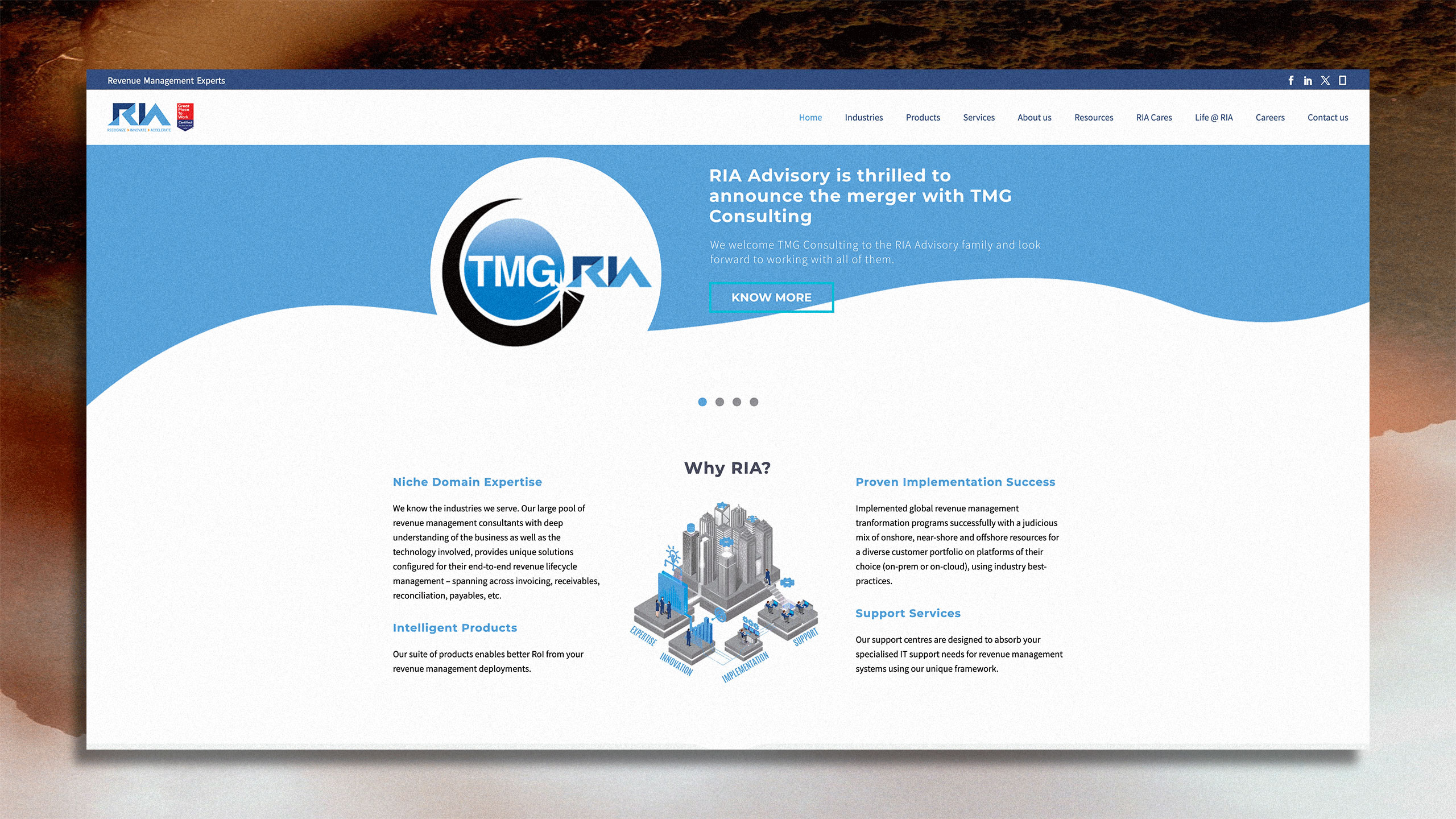
6. Course5 Intelligence
Course5 Intelligence: an analytics-forward oracle consulting services provider focused on AI and data integration across oracle cloud consulting ecosystems. The firm leverages machine learning and big data to optimize oracle digital commerce, CX, and ERP implementations for enterprise clients, making it a strong choice for data-centric transformation strategies requiring custom oracle implementation.
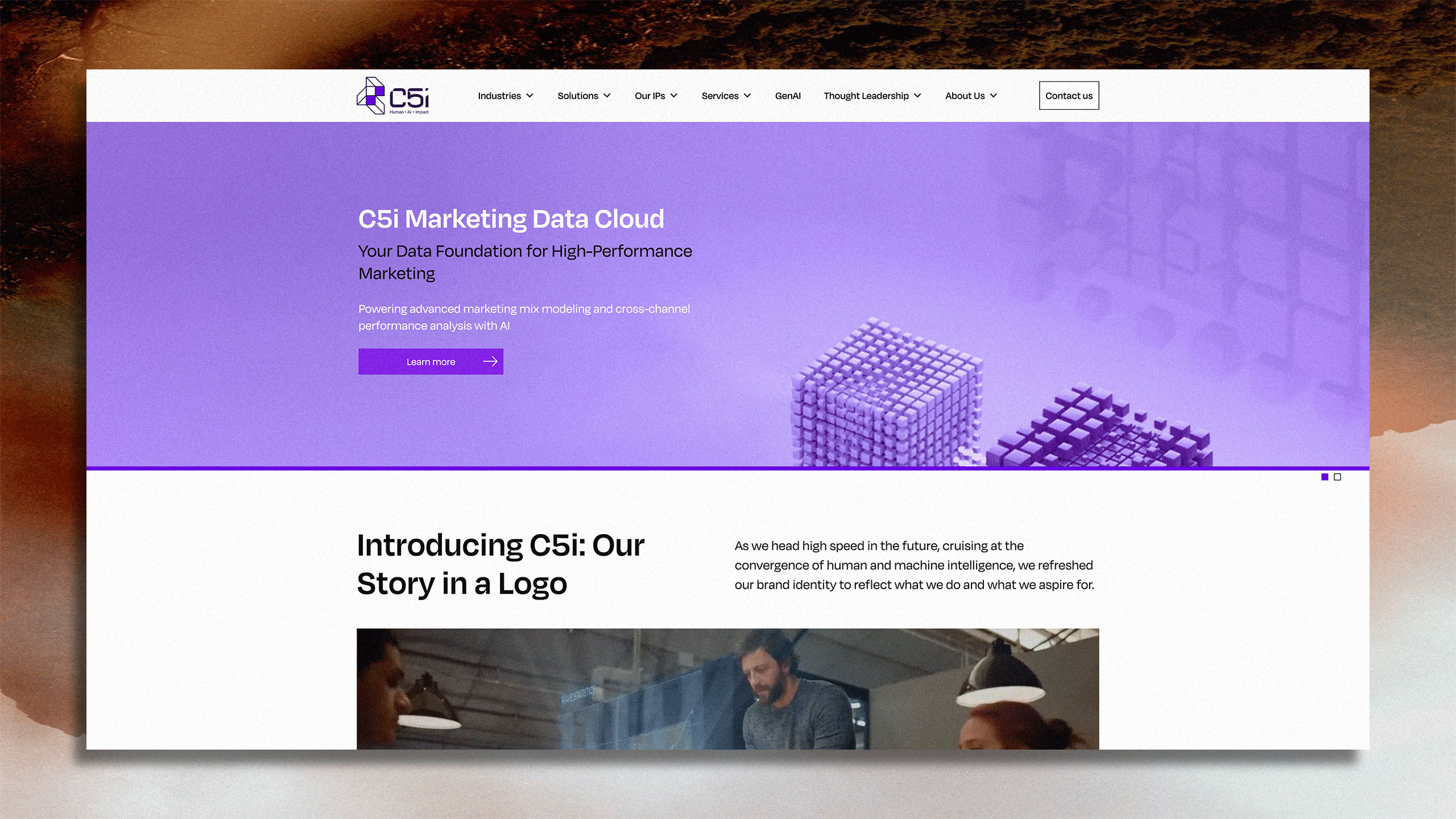
7. Alpha Apex Group
Alpha Apex Group: a specialized oracle partner offering oracle consulting services for HR, finance, and workforce planning. Alpha Apex delivers targeted oracle implementation and oracle service cloud integrations for midsize and large enterprises, with a strong reputation in HCM and payroll transformations under the Oracle Cloud HCM suite.
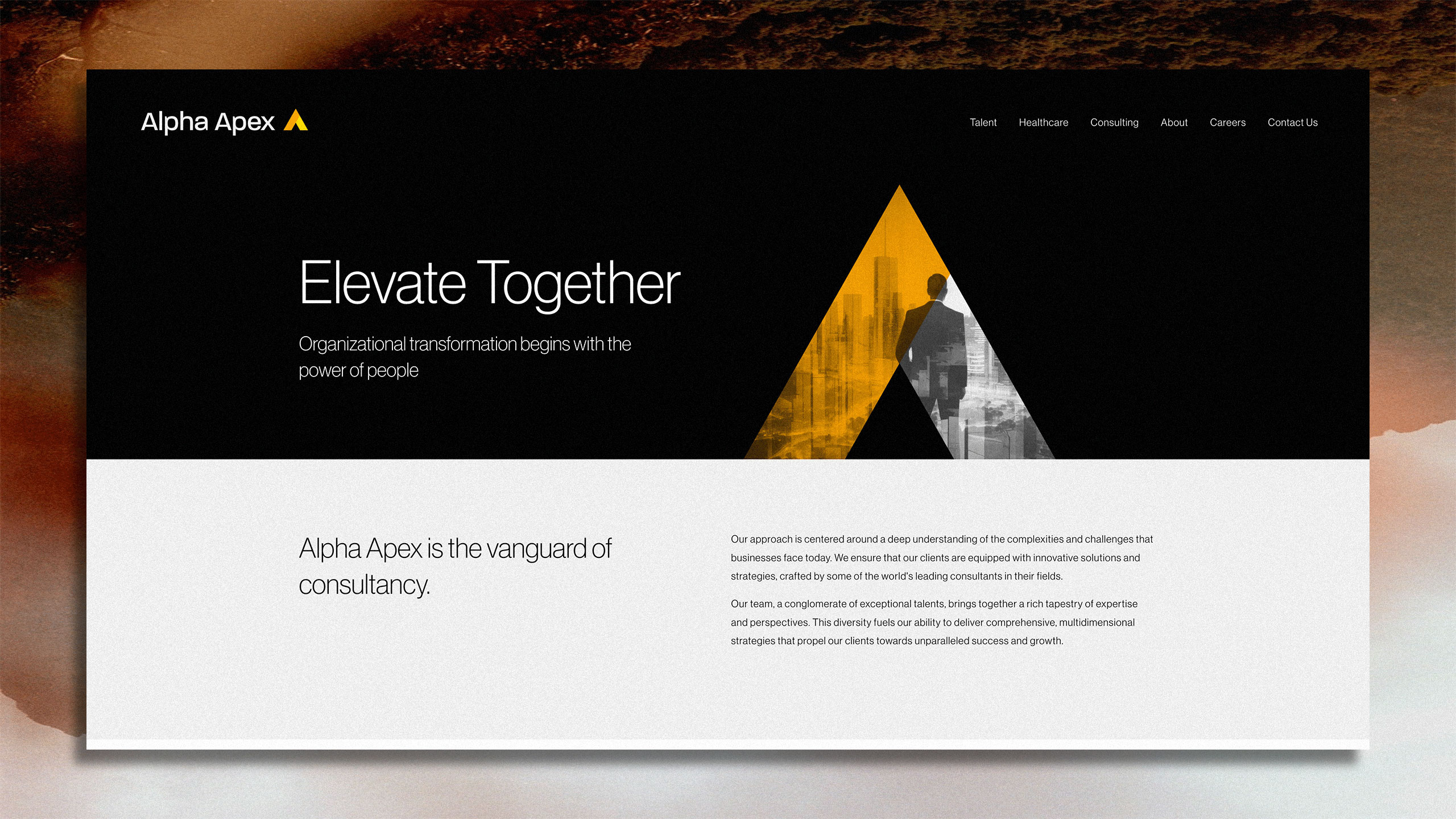
8. AXIA Consulting
AXIA Consulting: a US-based oracle consulting services firm helping enterprise clients align technology and business goals through strategic oracle implementation. The company focuses on ERP modernization, cloud migration, and oracle cloud consulting services, supporting clients through every phase from assessment to go-live across HCM and finance platforms.
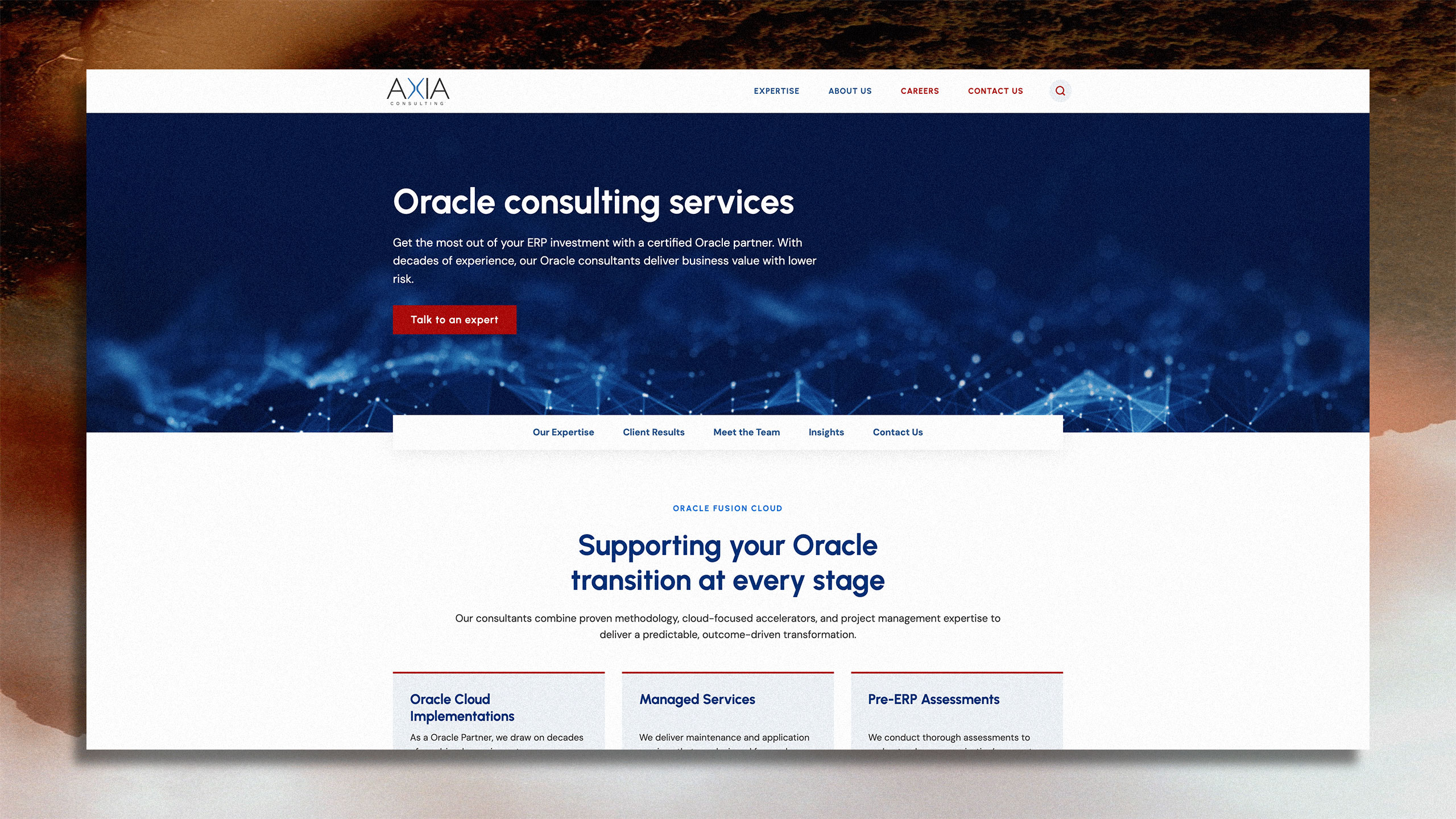
9. Mastek
Mastek: a global digital engineering firm and oracle partner offering extensive oracle cloud consulting and oracle implementation support. Mastek is known for enabling large-scale digital commerce platforms and ERP deployments, with an emphasis on speed, agility, and secure cloud architecture through oracle service cloud and CX integrations.
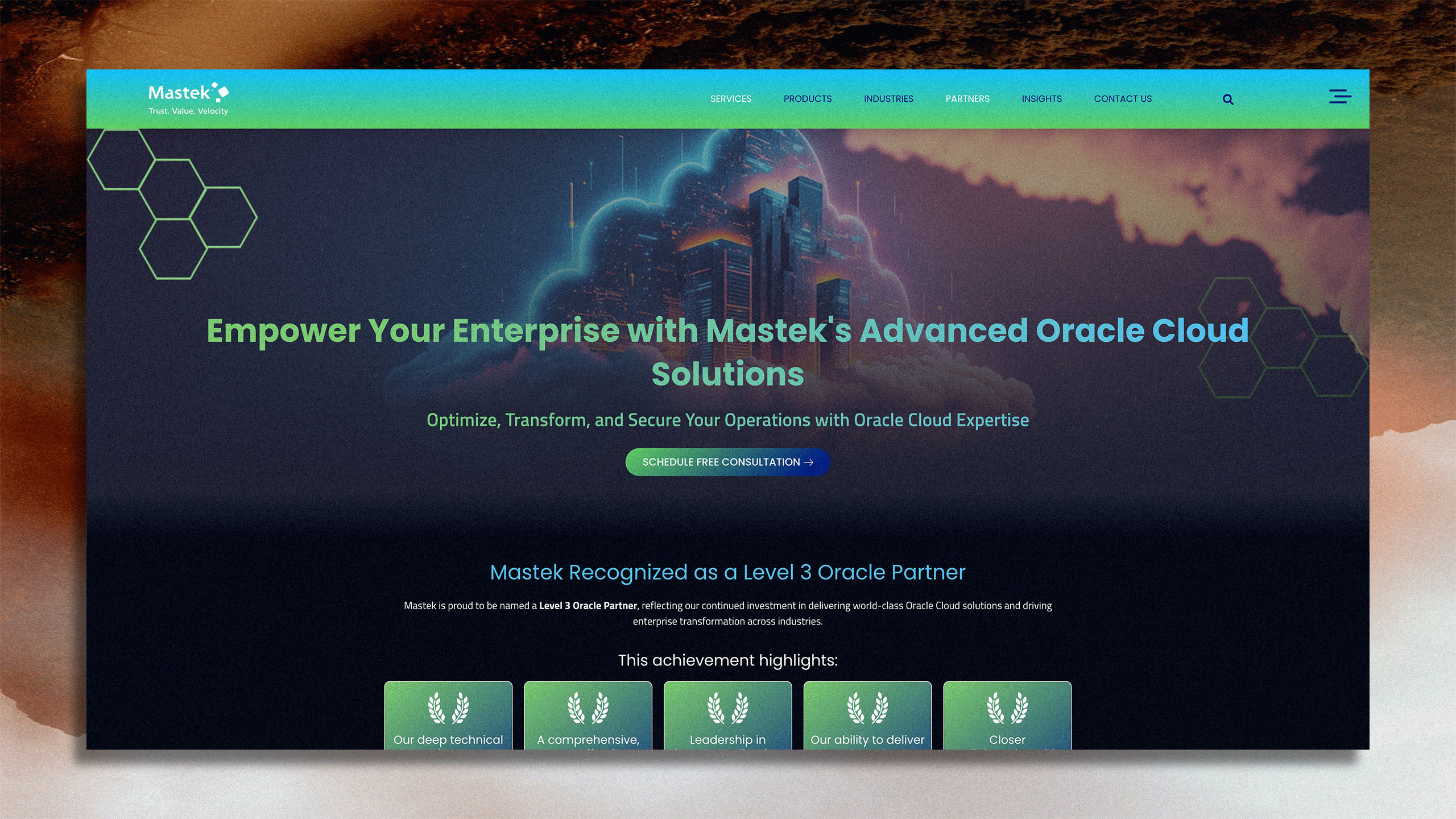
10. DTC Global Services
DTC Global Services: a government-focused oracle consulting services firm delivering oracle cloud consulting, data management, and ERP implementations. As an established oracle partner, DTC supports federal and commercial clients with secure, scalable oracle service cloud solutions, offering deep capabilities in procurement, financial systems, and IT modernization programs.
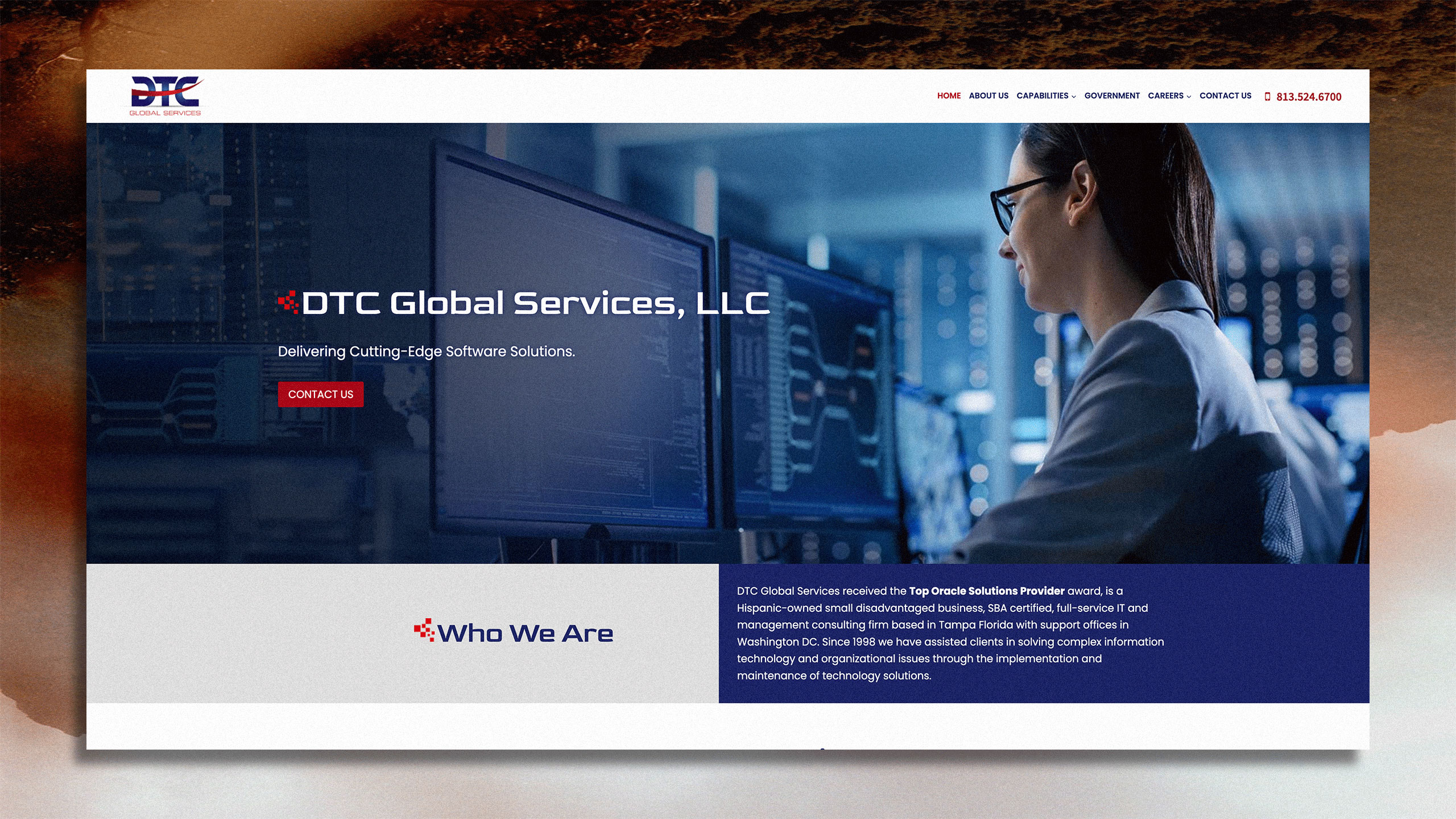
Let’s kickstart the conversation and design stuff people will love.

What is Technology and Integration Consulting?
Technology and integration consulting is a specialized advisory function that helps organizations design, implement, and optimize technology ecosystems that enable core business capabilities. It involves aligning digital infrastructure—such as enterprise resource planning (ERP), customer relationship management (CRM), and cloud platforms—with strategic objectives, ensuring systems communicate seamlessly across business functions. This type of consulting typically spans system architecture design, data migration, cloud enablement, and middleware integration, enabling organizations to improve agility, reduce operational silos, and unlock scalable performance across increasingly complex digital landscapes.
How Does Technology and Integration Consulting Work?
Technology and integration consulting begins with a diagnostic assessment of an organization’s existing technology stack, data flows, and business requirements, followed by a roadmap that outlines system upgrades, integrations, and future-state architecture. Consultants identify gaps in interoperability, legacy dependencies, and inefficiencies, then configure tailored solutions that often include cloud platforms, APIs, data lakes, or enterprise service buses. Execution involves vendor selection, solution design, system configuration, testing, and change management. Throughout the process, the focus remains on enabling real-time data exchange, scalable operations, and a harmonized technology foundation that supports future digital initiatives.
What Is an Oracle Consulting Services Firm?
An Oracle consulting services firm is a specialized technology partner that supports organizations in the strategic deployment and optimization of Oracle’s suite of enterprise applications, including ERP, HCM, CX, and supply chain solutions. These firms offer end-to-end expertise in oracle implementation, oracle service cloud configuration, oracle cloud consulting, and system integration, ensuring that Oracle technologies align with a company’s operational goals and compliance requirements. Leveraging deep product knowledge and industry experience, an Oracle consulting firm enables clients to maximize value from their Oracle investment through tailored configurations, data migration, digital commerce enablement, and ongoing platform innovation.
In today’s enterprise landscape, effective technology and integration are no longer optional—they are foundational to digital transformation and sustained competitive advantage. Oracle consulting services firms play a critical role in enabling this shift, helping organizations implement, configure, and optimize Oracle’s suite of cloud and on-premise solutions. From modernizing ERP systems to unifying customer data across channels, these firms bring the specialized expertise needed to translate complex business requirements into scalable, integrated technology environments. The following section outlines the core capabilities an Oracle consulting services firm provides across strategy, implementation, and ongoing optimization—demonstrating how they serve as essential partners in driving technology-led growth.
What Services Do Oracle Consulting Firms Provide?
Oracle Implementation Services
Oracle consulting services firms lead full-cycle Oracle implementation projects across ERP, HCM, SCM, CX, and industry-specific modules. This includes initial system design, configuration, data migration, testing, and deployment. Consultants work closely with stakeholders to define business requirements, map them to Oracle’s capabilities, and configure the solution to support key workflows and regulatory needs. The process often incorporates custom integrations, security frameworks, and change management support to ensure a smooth transition from legacy systems to the Oracle environment.
Oracle Cloud Consulting
Oracle cloud consulting services help organizations migrate from on-premise or hybrid infrastructures to Oracle Cloud Infrastructure (OCI) and SaaS applications. This includes cloud readiness assessments, multi-phased migration planning, and end-to-end execution of infrastructure, platform, and application moves. Firms optimize cloud architecture to ensure scalability, security, and performance while aligning it with financial and operational objectives. The goal is to enable clients to modernize their IT stack, reduce costs, and enhance agility through cloud-native Oracle solutions.
Oracle Service Cloud Integration
A core service offering includes deploying and customizing Oracle Service Cloud to streamline customer service operations. Consulting firms configure case management, knowledge bases, contact center integration, and automated workflows to enhance customer experience and agent efficiency. Integrations with CRMs, chatbots, and backend systems are also managed to ensure unified service delivery across touchpoints. The result is a scalable support environment with advanced reporting, real-time insights, and increased customer satisfaction.
Oracle ERP Modernization
Firms support clients in modernizing outdated ERP platforms by migrating to Oracle Fusion Cloud ERP or optimizing existing Oracle environments. This includes re-engineering business processes, standardizing data models, and leveraging Oracle’s financials, procurement, and project management capabilities. Consultants ensure that ERP transformations align with strategic business goals and compliance mandates while delivering automation, analytics, and global visibility across operations.
Oracle CX and Digital Commerce Enablement
Oracle consulting services firms help clients deploy Oracle Customer Experience (CX) Cloud and Oracle Commerce platforms to create personalized, omnichannel customer journeys. Services include configuring customer data platforms (CDPs), marketing automation, loyalty programs, and ecommerce experiences. The focus is on integrating CX solutions with ERP and CRM systems to deliver unified customer insights and drive conversion, retention, and lifetime value.
Oracle Data & Analytics Solutions
These firms deliver data-driven transformation by implementing Oracle Analytics Cloud, Autonomous Data Warehouse, and related tools. Services include data strategy, ETL pipeline design, dashboard development, and predictive modeling. Consultants enable clients to centralize disparate data sources, improve reporting accuracy, and embed analytics into decision-making processes. This empowers leaders with real-time, actionable intelligence to drive business performance.
Application Integration & Middleware Services
Oracle consulting services firms design and implement integration strategies using Oracle Integration Cloud (OIC), SOA Suite, and API-led connectivity frameworks. These services connect Oracle and third-party applications across finance, HR, supply chain, and customer-facing systems. By enabling seamless data exchange and workflow automation, firms help eliminate silos and enhance operational efficiency across the enterprise.
Managed Services & Ongoing Optimization
Post-implementation, firms offer managed services to maintain and optimize Oracle applications. This includes performance monitoring, patching, enhancements, and user support. Firms also conduct periodic system reviews, implement new features, and realign configurations based on evolving business needs. The goal is to maximize ROI from the Oracle investment while ensuring long-term scalability, compliance, and performance.
How Long Does a Technology and Integration Consulting Service Engagement Take to Complete?

Understanding the typical timeline of an Oracle consulting services engagement is critical for planning and resource alignment. While project durations vary based on scope, system complexity, and organizational readiness, Oracle consulting firms follow structured phases that ensure efficiency without compromising quality. From initial discovery through configuration, testing, and go-live, these timelines are designed to minimize disruption while accelerating value realization. This section outlines the standard duration of each engagement phase and the factors that influence overall project length, providing a clear view of what clients can expect when partnering with an Oracle consulting services firm.
Project Scope and Complexity
The overall size and complexity of the project is one of the most significant factors impacting timelines. Clients deploying multiple Oracle modules—such as ERP, HCM, and CX—can expect a longer engagement compared to a single-system implementation. Complex workflows, global rollouts, or extensive customizations further increase duration. Oracle consulting services firms typically conduct a detailed scoping phase to define timelines based on business process depth, integrations required, and the number of users or business units involved.
Current System Landscape
The nature and condition of the existing technology environment play a critical role in determining project length. Clients migrating from heavily customized legacy systems or integrating Oracle with multiple third-party applications will experience longer discovery, data mapping, and testing phases. An Oracle consulting firm will assess existing architecture, data quality, and dependencies early in the engagement to anticipate challenges and align project plans accordingly.
Data Migration and Cleansing
Data migration is often one of the most time-intensive components of an Oracle implementation. The time required depends on the volume of data, data structure, and the level of cleansing or transformation needed before it can be moved into the Oracle ecosystem. Oracle consulting services firms support clients with data extraction, validation, transformation logic, and reconciliation, but delays can occur if data is inconsistent or scattered across multiple sources.
Customization Requirements
The more custom configurations or enhancements required beyond Oracle’s standard functionality, the longer the engagement. While Oracle Cloud applications are designed with best practices out of the box, clients often require tailored workflows, reports, or integrations. Oracle consulting firms evaluate these requests during the design phase and provide estimates based on development, testing, and change management efforts associated with each customization.
Client Readiness and Decision-Making Speed
Timelines are also impacted by how quickly client teams can make decisions, approve deliverables, and allocate internal resources. Delays in sign-offs, limited stakeholder availability, or unclear business requirements can slow momentum. Oracle consulting services firms mitigate this risk by aligning with key decision-makers early and maintaining a structured cadence of meetings, approvals, and status updates throughout the engagement.
Integration Requirements
If the Oracle solution must connect with multiple third-party platforms—such as CRM, ERP, ecommerce, or data lakes—engagements may take longer due to the additional architecture design, API development, and testing cycles involved. Oracle consulting firms manage integration workstreams in parallel with configuration to streamline delivery, but dependencies on external vendors or legacy interfaces can introduce delays.
Testing and Quality Assurance
The scope of testing—including unit testing, system integration testing (SIT), and user acceptance testing (UAT)—can significantly affect timelines. A thorough testing strategy is essential for minimizing go-live risks but may require several weeks, especially if rework is needed. Oracle consulting services firms manage test planning, execution, and defect resolution, coordinating closely with client teams to stay on schedule.
Change Management and Training
User adoption and organizational change readiness are essential to a successful Oracle implementation and can influence the overall timeline. Firms often build in time for change management activities, such as stakeholder alignment, communication plans, training sessions, and post-go-live support. If the organization requires a phased adoption strategy or extensive upskilling, this can extend the engagement timeline.
Deployment Approach
Whether the project is executed in a big-bang, phased, or hybrid rollout impacts the overall timeline. A phased approach—where modules or geographies go live in stages—spreads the timeline but reduces operational risk. Oracle consulting services firms work with clients to determine the right deployment model based on business continuity, technical dependencies, and resource availability.
Post-Go-Live Support Needs
The length of post-implementation support or hypercare can also vary depending on the client’s internal capabilities and the complexity of the solution. Some clients require extended managed services or hands-on support to stabilize the system, onboard users, and address early-stage issues. Oracle consulting firms typically include a defined post-go-live support window in the timeline and offer extensions as needed based on client requirements.
How Oracle Consulting Services Firms Price Their Work
Engaging an Oracle consulting services firm involves a range of pricing considerations that reflect the scope, complexity, and duration of the engagement. While costs can vary significantly based on the specific Oracle solutions being implemented—such as ERP, HCM, CX, or Service Cloud—firms typically structure pricing around project-based fees, time-and-materials, or ongoing managed services. Understanding how these models work, what drives cost variability, and what value is delivered at each stage is essential for budgeting effectively and ensuring alignment between investment and outcomes. This section explores the key factors that influence pricing and how organizations can evaluate cost in the context of long-term ROI.
Scope of Services
The breadth and depth of services required directly influence pricing. A full-scale Oracle implementation—including strategy, configuration, integration, training, and post-go-live support—will command a higher fee than targeted support or system enhancements. Oracle consulting services firms assess whether the engagement involves a single module (such as ERP or HCM) or spans multiple solutions, and price accordingly to reflect the required level of effort and resource allocation.
Project Duration
Longer engagements generally lead to higher overall costs due to sustained consultant involvement across planning, design, testing, and deployment phases. Firms typically structure pricing around the number of weeks or months projected for delivery, with longer timelines necessitating additional hours, senior oversight, and extended project management. In time-and-materials models, billing aligns directly with the time spent, while fixed-fee engagements factor expected duration into the total cost upfront.
Level of Customization
Projects that involve significant customization—such as tailored workflows, integrations with non-Oracle systems, or complex reporting—will typically increase the cost of an engagement. Oracle consulting services firms must allocate technical architects, developers, and QA specialists to design, build, and test these custom features, which adds time and complexity. Pricing reflects the additional development cycles and risk mitigation measures required to ensure custom components work seamlessly within the Oracle ecosystem.
Resource Mix and Seniority
The composition of the delivery team affects pricing based on experience level and specialization. Senior consultants, solution architects, and industry experts command higher hourly or daily rates than junior resources or support staff. Oracle consulting services firms build pricing models that reflect the required skill mix for each phase of the project—whether it’s a strategic roadmap led by a principal consultant or a technical integration handled by a developer.
Deployment Model
Whether the engagement follows a phased rollout, big-bang deployment, or hybrid approach influences pricing due to the varying intensity of resource needs. Phased rollouts may spread costs over time but involve prolonged engagement, while big-bang deployments require concentrated effort, parallel workstreams, and heightened risk management—often reflected in higher upfront costs. Oracle consulting firms account for the level of coordination and contingency planning required under each model.
Client Industry and Compliance Requirements
Certain industries—such as healthcare, finance, or government—have specific compliance, security, or data residency requirements that add complexity and influence cost. Oracle consulting services firms may need to deploy additional resources or adhere to strict regulatory standards, which can extend timelines and increase project overhead. Pricing reflects this added diligence and domain-specific expertise required to meet industry mandates.
Post-Go-Live Support and Managed Services
Ongoing support needs after deployment—such as hypercare, system monitoring, enhancements, or help desk services—are typically priced separately from the initial implementation. Oracle consulting services firms offer managed service packages based on service level agreements (SLAs), response times, and the scope of functional or technical support. These costs vary depending on whether the client opts for short-term stabilization or long-term application management.
Licensing and Third-Party Costs
While Oracle product licensing is typically handled directly with Oracle, consulting firms often guide clients through the selection and optimization of license types, which can impact total project cost. In addition, any third-party tools, middleware, or integration platforms required for the implementation may introduce additional fees. Oracle consulting services firms help estimate and manage these indirect costs as part of the total cost of ownership discussion.
Why Hire a Oracle Consulting Services Firm
As enterprise systems grow more complex and business demands evolve, the need for specialized expertise in Oracle technologies becomes increasingly critical. Oracle consulting services firms provide the strategic guidance, technical proficiency, and industry insight required to ensure successful implementations and long-term value realization. Whether deploying Oracle Cloud applications, integrating legacy systems, or optimizing digital commerce platforms, these firms offer a level of precision and scalability that internal teams often cannot match. This section explores the core reasons organizations choose to engage Oracle consulting partners—and how doing so accelerates transformation, reduces risk, and drives measurable impact across the business.
Specialized Oracle Expertise
Oracle consulting services firms bring deep technical knowledge and hands-on experience with Oracle’s suite of applications, including ERP, HCM, CX, and Oracle Service Cloud. Their certified consultants are familiar with product capabilities, configuration best practices, and common implementation pitfalls—allowing them to tailor solutions that align with business requirements and avoid costly missteps. This level of expertise accelerates decision-making and ensures that every stage of the project—design, build, test, and deploy—is executed with precision.
Accelerated Implementation Timelines
By applying proven methodologies, prebuilt accelerators, and dedicated delivery teams, Oracle consulting services firms reduce time-to-value for enterprise technology initiatives. Their structured approach enables organizations to move efficiently through planning, configuration, and deployment phases without unnecessary delays. For companies facing tight transformation timelines or competitive pressures, working with a seasoned Oracle partner ensures speed without compromising quality or stability.
Seamless System Integration
Integrating Oracle applications with existing enterprise systems—such as CRMs, ecommerce platforms, or data warehouses—can be complex and resource-intensive. Oracle consulting services firms specialize in building seamless connections between platforms using tools like Oracle Integration Cloud, APIs, and middleware solutions. Their ability to manage integration strategy, execution, and testing helps ensure data consistency, reduce operational silos, and create a unified digital ecosystem across departments.
Scalable, Future-Ready Architecture
Businesses engage Oracle consulting firms to design solutions that not only meet today’s needs but also scale with growth. These partners bring experience building cloud-native architectures that support modular deployments, global expansion, and evolving compliance requirements. Whether deploying a single Oracle module or a multi-cloud enterprise environment, Oracle consulting services firms help clients establish a flexible foundation capable of adapting to future business demands.
Risk Mitigation and Compliance
Oracle implementations carry significant technical and operational risk if not properly managed. Consulting firms provide structured governance, quality assurance, and change management protocols that reduce the likelihood of errors, budget overruns, and missed deadlines. In industries with strict regulatory requirements, these firms also ensure Oracle configurations align with data privacy laws, audit standards, and internal compliance frameworks—minimizing exposure and ensuring readiness from day one.
Enhanced Internal Focus
By outsourcing specialized Oracle workstreams to a consulting partner, internal teams can remain focused on core business operations. Oracle consulting services firms provide the dedicated attention and technical depth needed for implementation while allowing in-house stakeholders to concentrate on strategic priorities and day-to-day performance. This balance leads to smoother project delivery and less disruption across the organization.
Long-Term Support and Optimization
The value of an Oracle consulting firm often extends well beyond go-live. These firms provide ongoing support, performance tuning, and enhancement roadmaps that evolve alongside the organization. Whether through managed services or periodic reviews, Oracle consulting partners help businesses continuously optimize their systems, adopt new product capabilities, and maintain alignment with changing market conditions—ensuring long-term success from the Oracle investment.
How to Choose The Most Reliable Oracle Consulting Services Firm

Selecting the right Oracle consulting services firm is a critical decision that can significantly influence the success of a technology transformation initiative. With a wide range of providers offering varying levels of expertise, industry experience, and service models, businesses must evaluate potential partners through a strategic lens. The right consulting firm should not only have deep Oracle product knowledge but also a strong track record of delivering results in similar organizational contexts. This section outlines the key criteria and questions companies should consider when choosing an Oracle consulting partner—ensuring alignment, accountability, and long-term value from the engagement.
Proven Experience with Oracle Products
When selecting an Oracle consulting services firm, it is essential to evaluate their hands-on experience with the specific Oracle solutions being deployed—whether ERP Cloud, Oracle Service Cloud, HCM, CX, or industry-specific applications. Look for firms with a history of successful implementations in similar functional areas, as well as those with certified Oracle consultants who understand both the technical and strategic dimensions of the platform. A strong portfolio demonstrates their ability to adapt Oracle’s capabilities to diverse operational needs.
Industry-Specific Expertise
Oracle deployments often require a deep understanding of sector-specific processes, regulatory frameworks, and operational models. The most effective Oracle consulting services firms bring domain expertise that allows them to tailor solutions to the unique challenges of industries such as healthcare, finance, manufacturing, or retail. This knowledge ensures faster alignment with business requirements, more relevant configurations, and better overall system performance.
Integration Capabilities Across Platforms
Modern enterprises rely on a mix of applications—cloud and on-premise—which makes seamless integration a critical success factor. A qualified Oracle consulting services firm should demonstrate expertise in integrating Oracle with third-party platforms such as Salesforce, Workday, SAP, or ecommerce and data platforms. Their ability to architect secure, scalable, and well-orchestrated integrations ensures that data flows efficiently and processes remain uninterrupted across the business.
Methodology and Delivery Model
The consulting firm’s approach to delivery—including how it structures project phases, manages risk, and collaborates with stakeholders—can greatly influence project outcomes. Prospective clients should assess whether the firm employs a proven implementation methodology, offers flexibility in delivery models (e.g., agile vs. waterfall), and maintains clear governance structures throughout the engagement. Transparent processes and consistent communication are critical for maintaining alignment and controlling costs.
References and Case Studies
Validated proof of success—through client testimonials, case studies, or reference calls—is a key indicator of a consulting firm’s ability to deliver value. Oracle consulting services firms should be able to provide examples of similar projects, including measurable results, challenges overcome, and lessons learned. This insight gives prospective clients a clear picture of the firm’s capabilities, responsiveness, and reliability under real-world conditions.
Oracle Partner Network Status
A firm’s standing within the Oracle Partner Network (OPN) provides a signal of credibility and commitment to the Oracle ecosystem. Look for consulting firms that have achieved Oracle certifications or specialized partner designations, which indicate a deeper level of training, product access, and support alignment with Oracle itself. These partnerships often translate into faster issue resolution, earlier access to new features, and closer alignment with Oracle’s best practices.
Post-Go-Live Support and Managed Services
Implementation is only one part of the equation; long-term success depends on continued support, optimization, and system evolution. A strong Oracle consulting services firm should offer robust post-go-live services, including application monitoring, troubleshooting, user training, and periodic health checks. Clients should look for firms that view support as a strategic partnership—not just a technical afterthought.
Flexibility and Scalability of Engagement
Every organization’s needs evolve over time, so it’s important to choose an Oracle consulting partner that offers flexible engagement models—ranging from full project ownership to on-demand advisory support. Firms that can scale up resources, adjust timelines, or extend services as the project grows are better equipped to support organizations in dynamic business environments. This adaptability ensures that the consulting relationship remains valuable beyond the initial deployment.
15 Questions To Ask Oracle Consulting Services Firms Before You Hire One
Before selecting an Oracle consulting services firm, decision-makers must ensure they have a clear understanding of the firm’s capabilities, approach, and alignment with business needs. Asking the right questions upfront not only uncovers the firm’s technical expertise and industry experience but also reveals how they manage risk, drive results, and support long-term success. This section outlines key questions prospective clients should ask during the evaluation process to make an informed, confident hiring decision—ensuring the chosen Oracle consulting partner is equipped to deliver both immediate value and lasting impact.
Here are 15 strategic and practical questions a prospective client might ask before hiring an Oracle consulting services firm:
- What experience do you have with the specific Oracle products we plan to implement (e.g., Oracle ERP Cloud, HCM, CX, Service Cloud)?
- Can you provide case studies or references from past Oracle implementations similar in size and scope to ours?
- What is your typical implementation methodology, and how do you manage risk throughout the project lifecycle?
- How do you handle integrations with non-Oracle systems such as Salesforce, SAP, or legacy platforms?
- What certifications or partner designations do you hold within the Oracle Partner Network (OPN)?
- How do you structure your project teams, and what is the average level of experience among your consultants?
- What is your typical project timeline for a deployment of our complexity, and what factors could extend it?
- How do you approach data migration, cleansing, and validation during Oracle implementations?
- What level of post-go-live support do you offer, and do you provide managed services for ongoing optimization?
- How do you ensure user adoption and support change management throughout the organization?
- What industries do you have the most experience in, and how do you tailor Oracle solutions to sector-specific needs?
- Do you offer flexible engagement models, such as fixed-fee, time-and-materials, or hybrid structures?
- How do you ensure compliance with data security, privacy regulations, and audit requirements within Oracle Cloud solutions?
- What is your approach to reporting, performance monitoring, and analytics within the Oracle ecosystem?
- How do you stay current with Oracle updates, and how do you help clients take advantage of new features and releases?
What Experience Do You Have With the Specific Oracle Products We Plan to Implement (e.g., Oracle ERP Cloud, HCM, CX, Service Cloud)?
It’s essential to ensure that a consulting firm has hands-on experience with the exact Oracle products you plan to deploy. Oracle’s cloud suite includes a range of highly specialized applications, and a firm’s familiarity with those specific tools can significantly impact the success of your project. Whether you’re rolling out Oracle ERP Cloud for financial management or Oracle CX for customer engagement, relevant product expertise helps minimize configuration errors, accelerates delivery, and ensures you’re leveraging the full functionality of the platform.
Can You Provide Case Studies or References From Past Oracle Implementations Similar in Size and Scope to Ours?
Asking for case studies or references gives you insight into the firm’s track record and ability to deliver results in a comparable environment. A proven history of success with clients that share your industry, scale, or complexity provides confidence in their ability to manage your specific needs. This not only highlights their technical capabilities but also their experience with common challenges—such as change management or data migration—and how they’ve overcome them in real-world scenarios.
What Is Your Typical Implementation Methodology, and How Do You Manage Risk Throughout the Project Lifecycle?
Understanding a firm’s implementation methodology helps you evaluate how structured and reliable their approach is from planning to go-live. Whether they use waterfall, agile, or hybrid models, the ability to proactively manage risk—through phased rollouts, governance checkpoints, and mitigation strategies—is key to avoiding project delays and budget overruns. A clear methodology also signals maturity in delivery processes and gives stakeholders visibility into how the firm tracks milestones, handles setbacks, and maintains accountability.
How Do You Handle Integrations With Non-Oracle Systems Such as Salesforce, SAP, or Legacy Platforms?
Most enterprise environments include a mix of systems, making integration a critical success factor. A qualified Oracle consulting services firm should demonstrate expertise in connecting Oracle products with other business-critical platforms to enable seamless data exchange and workflow continuity. Asking this question reveals how the firm approaches integration architecture, middleware tools, and API development—ensuring your new Oracle solution won’t operate in a silo.
What Certifications or Partner Designations Do You Hold Within the Oracle Partner Network (OPN)?
A firm’s standing within the Oracle Partner Network (OPN) reflects its level of specialization, product knowledge, and access to Oracle support. Certifications and designations—such as “Oracle Cloud Service Expertise” or “Certified Cloud Elite Partner”—indicate a deeper alignment with Oracle’s standards and often give the firm early access to product updates and resources. These qualifications are a strong signal of credibility and ongoing investment in Oracle’s ecosystem.
How Do You Structure Your Project Teams, and What Is the Average Level of Experience Among Your Consultants?
The structure and seniority of a consulting team can heavily influence project outcomes. Knowing who will be working on your engagement—including solution architects, functional leads, and technical developers—helps you evaluate whether the firm can match the complexity of your project with the right expertise. Experience levels directly affect problem-solving capabilities, efficiency, and the ability to anticipate and navigate challenges during implementation.
What Is Your Typical Project Timeline for a Deployment of Our Complexity, and What Factors Could Extend It?
Timelines vary depending on scope, system architecture, and organizational readiness. A consulting firm should be able to provide a realistic estimate based on similar past projects and be transparent about potential variables that could affect delivery—such as data migration issues, decision-making delays, or regulatory requirements. This question helps set expectations early and ensures alignment on resourcing, deadlines, and business continuity planning.
How Do You Approach Data Migration, Cleansing, and Validation During Oracle Implementations?
Data quality is often one of the most underestimated challenges in enterprise technology projects. A well-structured data migration process—covering extraction, transformation, cleansing, and validation—is critical to a successful Oracle implementation. This question helps you understand the firm’s methodology for ensuring that your historical data is not only migrated accurately but also optimized for performance and usability in the new system.
What Level of Post-Go-Live Support Do You Offer, and Do You Provide Managed Services for Ongoing Optimization?
Oracle systems require ongoing monitoring, updates, and adjustments long after go-live. Knowing what level of post-implementation support a firm offers—including bug fixes, user training, system tuning, and feature optimization—helps ensure your investment continues to deliver value. Managed services offerings also allow clients to offload technical maintenance, freeing internal teams to focus on strategic initiatives.
How Do You Ensure User Adoption and Support Change Management Throughout the Organization?
Technology adoption is just as much a people challenge as it is a technical one. Effective Oracle consulting firms incorporate structured change management plans that include stakeholder alignment, training, communications, and support materials. Asking this question reveals whether the firm has the experience to guide your organization through behavioral shifts, process changes, and user adoption—ensuring the system is not only implemented but fully embraced.
What Industries Do You Have the Most Experience In, and How Do You Tailor Oracle Solutions to Sector-Specific Needs?
Industry experience enables a consulting firm to deliver Oracle solutions that reflect best practices, regulatory requirements, and operational nuances specific to your business. Whether it’s revenue recognition in software, patient data in healthcare, or supply chain optimization in manufacturing, domain knowledge ensures the system is configured to support your business model, not just generic workflows.
Do You Offer Flexible Engagement Models, Such as Fixed-Fee, Time-and-Materials, or Hybrid Structures?
Budget predictability and project flexibility are key considerations when choosing a partner. Understanding a firm’s pricing models—whether fixed-fee for defined scopes or time-and-materials for evolving needs—allows you to choose the structure that best aligns with your internal budget controls and risk tolerance. This question also signals how adaptable the firm is in accommodating unique organizational constraints.
How Do You Ensure Compliance With Data Security, Privacy Regulations, and Audit Requirements Within Oracle Cloud Solutions?
With data security and regulatory scrutiny on the rise, Oracle implementations must be designed with compliance in mind from day one. Consulting firms should have protocols in place to support GDPR, HIPAA, SOX, and other frameworks, depending on your industry and geography. Their approach to data encryption, user access controls, and audit trails can be the difference between a compliant implementation and one that exposes the business to risk.
What Is Your Approach to Reporting, Performance Monitoring, and Analytics Within the Oracle Ecosystem?
A strong Oracle deployment should empower better decision-making through real-time reporting and analytics. This question reveals how the consulting firm designs dashboards, configures KPIs, and ensures data visibility across departments. Their approach to reporting tools—such as Oracle Analytics Cloud or embedded BI—will directly impact how effectively leadership can measure outcomes and track performance.
How Do You Stay Current With Oracle Updates, and How Do You Help Clients Take Advantage of New Features and Releases?
Oracle regularly introduces enhancements, security patches, and new capabilities across its cloud platforms. A forward-looking consulting firm should have mechanisms in place to monitor these updates and proactively advise clients on which changes are relevant. This question helps assess whether the firm is committed to continuous improvement and long-term client success, rather than viewing the relationship as a one-time implementation.
Searching for the right Oracle Consulting Services Firm?
Hiring an Oracle consulting services firm is a strategic decision that can significantly accelerate digital transformation, reduce risk, and ensure long-term value from Oracle’s suite of cloud and enterprise solutions. Whether it’s implementing Oracle ERP, optimizing CX, or managing complex integrations, these firms bring the specialized knowledge, technical depth, and delivery discipline required to make each phase of the project successful. From roadmap development to post-go-live optimization, the right partner helps organizations navigate complexity, align technology with business goals, and unlock meaningful performance gains. As enterprise demands continue to evolve, partnering with an experienced Oracle consulting firm is not just beneficial—it’s essential to building a scalable, future-ready operation.
G & Co. stands out as a trusted Oracle consulting services firm for enterprise brands seeking tailored, high-impact technology and integration solutions. With deep expertise across Oracle ERP, HCM, CX, and Service Cloud, G & Co. helps clients streamline operations, unify data, and deploy cloud-native architectures built for scale. As a strategic Oracle partner, the firm combines technical excellence with industry insight to deliver seamless implementations, end-to-end integration, and measurable business outcomes. From initial assessment to long-term support, G & Co. brings the precision, adaptability, and partnership mindset that defines the best in Oracle consulting.
Submit an inquiry to G & Co. on our contact page or click on the blue "Click to Contact Us" button on the bottom right corner of your screen for your convenience. We look forward to hearing from you.






%20(1).png)




